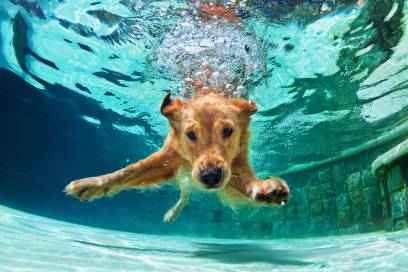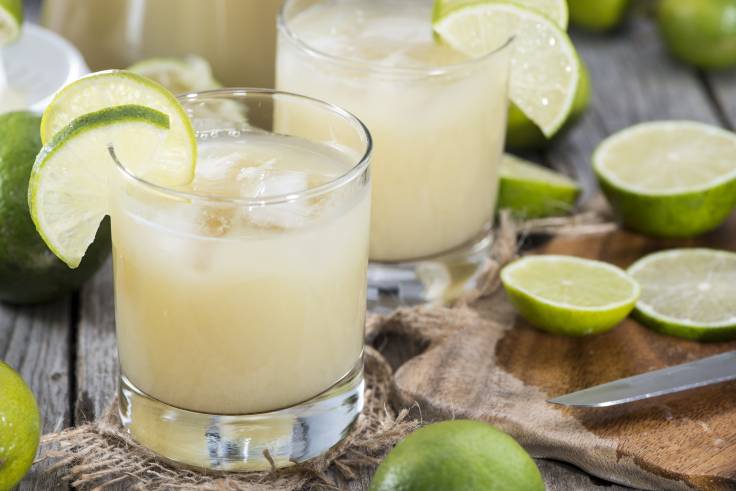What’s yummier than a nice glass of chocolate milk? It goes with everything. Well, just about anything! But what happens if your dog accidentally drinks chocolate milk?
Connect with a verified veterinarian in minutes. Licensed vets are available 24/7 to answer your questions. No need to worry about your furry family member.
Can Dogs Drink Chocolate Milk?
The short answer is no. Chocolate in any form is toxic to dogs, even chocolate milk. This is because chocolate milk contains substances called methylxanthines, which are similar to caffeine.
Methylxanthines are a group of substances found in chocolate, tea, coffee, and other foods. These substances include theobromine and other chemicals. Consider theobromine, which is the main toxic substance found in chocolate. This chemical acts as a diuretic, heart stimulant, blood vessel dilator, and smooth muscle relaxant.
Dogs are not able to metabolize theobromine or caffeine like we can, which leads to toxicity in dogs if they eat or drink large amounts of chocolate. These substances are toxic to dogs.
Another reason dogs should never drink milk of any kind is that some of our canine friends are lactose intolerant. And chocolate milk contains sugar, which is also bad for dogs.
Did you know that chocolate toxicity is one of the most common problems vets see? Pet poison helplines also receive the most calls about dogs who have eaten chocolate.
The problem is that pet parents and other people are not aware that chocolate is so bad for dogs and be mindful, popcorn is bad for dogs too which is often overlooked. Because we enjoy it and it’s safe for us, we assume it’s safe for our canine friends, too. But that’s just not the case.
Risk Factors to Consider
Dogs often get into chocolate, but why? Take a good look around your kitchen and home. Do you have chocolate there? If so, that means opportunities for your fur baby to get into it! Any food containing chocolate (even milk) can be dangerous to your dog.
A small dog may drink a glass of spilled chocolate milk, which could be enough to make him very sick. On the other hand, a larger dog may drink the same amount and come away with diarrhea and vomiting. It’s all relative to the dog’s size and how much milk he drinks.
Chocolate toxicity in dogs can be life-threatening, though it’s rare with chocolate milk. However, as a responsible pet parent, ensuring your fur baby doesn’t get into chocolate or chocolate milk is important. Even with the best precautions, accidents can happen. So, if your fur baby has ingested chocolate milk, it’s time to take action.

Review symptoms, medications & behavior to keep your pets healthy with a Vet Online in just minutes.
Ask a Vet Live NowSymptoms of Chocolate Toxicity
Here are some symptoms you may notice if your dog has eaten chocolate or had access to chocolate milk:
- Diarrhea
- Vomiting
- Agitation
- Hyperactivity
- Excessive drooling
- Increased thirst
- Racing heart
- High blood pressure
- Heart arrhythmias
- Seizures
- Tremors/twitching
- Cardiac failure
- Muscle rigidity
- Collapse
- Death
These symptoms are listed from in order from the less serious to the most serious. If your fur baby has only a lick or sip of chocolate milk, chances are he will be OK. However, he may have diarrhea and vomiting from the chemicals in the chocolate.
But if your dog has had quite a bit of chocolate milk, then you’ll need to call the vet right away. This could be a medical emergency.
Try to determine how much the milk your dog has had, and take the milk carton with to the vet’s, too. The information on the milk carton could be helpful to the vet when it comes to treating your dog.
Treatment for Chocolate Toxicity in Dogs
Early treatment ensures the chocolate is removed from your dog’s digestive system sooner rather than later. This works to lessen the damage the chocolate milk can do.
Treatment depends on the amount of chocolate milk your dog has ingested. If he had a small amount, then the vet may induce vomiting with activated charcoal. This works to keep more of the chocolate from being absorbed into the body.
Some dogs may need to have IV treatment to flush their kidneys; the IV also helps to keep the dog hydrated if they’ve been vomiting or experiencing diarrhea. Anti-nausea medications may also be given.
In those instances where a dog has had a large amount of chocolate milk, the dog will probably have to stay in the hospital. The vet may want to monitor the dog’s symptoms, heart rate and rhythm, etc. The dog may also need IV fluids and doses of activated charcoal.
Other symptoms, such as tachycardia and seizures may be treated with medicine during your dog’s recovery. In some cases, your fur baby may need to remain hospitalized until he’s in stable condition. However, it is possible that severe toxicity symptoms can last for up to 72 hours. So, a dog may need to be hospitalized for several days.
The prognosis is excellent for those dogs who receive prompt medical treatment. The main thing is to remember to keep all forms of chocolate out of your dog’s reach. This includes something that appears harmless such as chocolate milk.
Connect with a verified veterinarian in minutes. Licensed vets are available 24/7 to answer your questions. No need to worry about your furry family member.

Julie
Julie is a graduate of the University of North Carolina, Wilmington, where she studied Animal science. Though contrary to the opinion of her parents she was meant to study pharmacy, but she was in love with animals especially cats. Julie currently works in an animal research institute (NGO) in California and loves spending quality time with her little cat. She has the passion for making research about animals, how they survive, their way of life among others and publishes it. Julie is also happily married with two kids.
Review symptoms, medications & behavior to keep your pets healthy with a Vet Online in just minutes.
Ask a Vet Live Now



